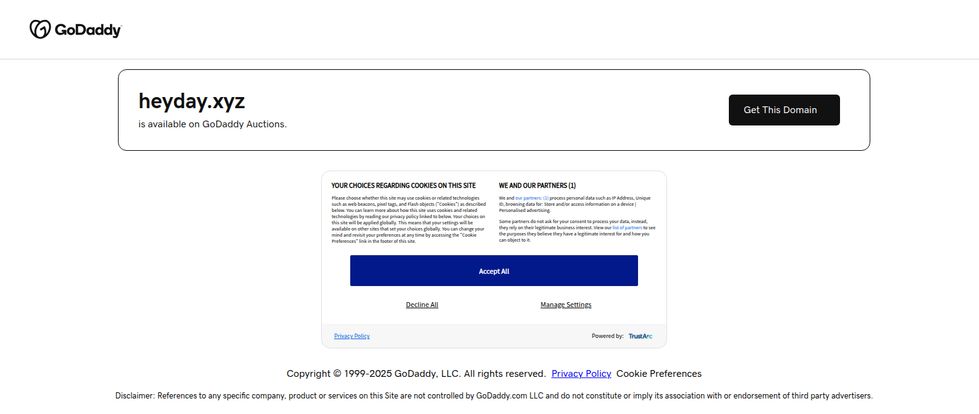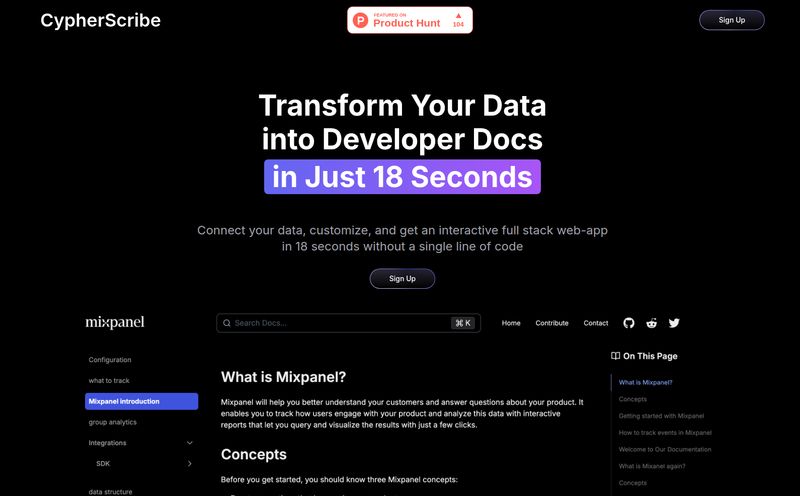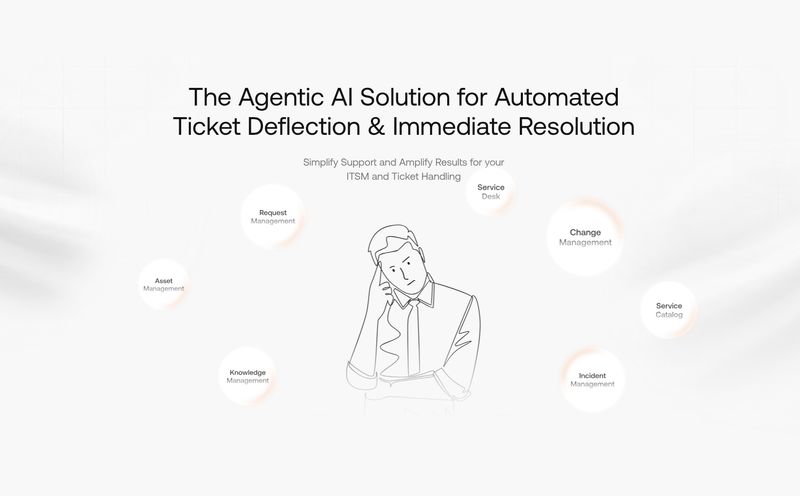Ever have that feeling? You're deep into a project, writing an article or putting together a presentation, and you think,
I swear I read a fantastic article about this last week.
You know, the one with the perfect statistic you need right now. You spend the next 20 minutes frantically typing vague search queries into Google, digging through your chaotic browser history, and coming up completely empty. It’s a special kind of frustrating that can derail your entire flow state.
For a while, I had a secret weapon against this exact problem. A tool called Heyday. It billed itself as an "AI-powered memory assistant," which sounds a bit like something out of a sci-fi movie, but the reality was even better. It was, for me and many others in the research-heavy fields of SEO and content creation, a game-changer. And then, poof. It seems to have vanished. So, this isn't just a review; it's part eulogy, part investigation, and a look at what made this tool so darn special.
So, What Was Heyday, Anyway?
Imagine a helpful little ghost living in your browser. Not a spooky one, but a friendly Casper-like ghost whose only job is to remember everything you've ever looked at online. That was Heyday. It wasn't just another bookmarking tool like Pocket or a note-taking app like Notion that you have to meticulously maintain. Oh no, its true genius was that it was automatic. You installed the browser extension, and it just… worked.
It silently indexed the pages you visited, the articles you read, and the documents you skimmed. It didn't just save the URL; it understood the content, creating a private, searchable knowledge base of your own digital footprint. It was less of a filing cabinet and more of a personal librarian for your mind, proactively handing you the book you didn't even know you were looking for.
How Heyday Worked Its Magic
The beauty of Heyday was how it integrated into your existing workflow. It didn't force you to learn a whole new system. Instead, it subtly enhanced the things you were already doing.
Your Automatic Research Sidekick
The core feature was its passive saving. I stopped manically hitting Ctrl+D on every interesting page. I just trusted Heyday to catch it. This alone cut down on so much mental clutter. The pressure to 'save this for later' disappeared, because 'later' was already being taken care of. It was a subtle shift but it had a massive impact on how I approached online research. Less anxiety, more curiosity.
Smarter Search Results
This was the showstopper for me. When you searched on Google, Heyday would inject a small, unobtrusive box onto the results page. This box contained… your own forgotten research. If you Googled "Q3 2024 CPC trends," it would show you the three articles and a PDF you'd already read on that exact topic a month ago. It was like having a conversation with your past self. Absolutely brilliant. It turned every Google search into a personalized discovery engine.

Visit Heyday
Context While You Read
Heyday also had this nifty feature called Article Overlays. While you were reading a new article, it would surface related content from your own history. You'd be reading about Google's latest algorithm update, and a little notification would pop up, linking you to a similar piece you saw on Search Engine Journal six months prior. It created these connections automatically, building a web of knowledge you didn’t have to weave by hand.
The Brain That Built Itself
All this automatically saved content fed into a personal knowledge base. Now, I've tried to build my own "second brain" in tools like Obsidian and Notion. I love the idea, but the upkeep is a killer. It requires discipline. You have to constantly tag, link, and organize. My Notion workspace often ends up looking like a digital garage sale.
Heyday’s knowledge base filled itself. You could search it, sure, but its real power was in how it resurfaced information contextually when you needed it most. It solved the "out of sight, out of mind" problem that plagues most knowledge management systems. It was a living, breathing archive of your own interests and curiosities.
The Good, The Bad, and The Price Tag
Nothing's perfect, right? Heyday had its trade-offs. Its greatest strength—the automatic, passive nature—was powered by a browser extension, which I know gives some folks pause. You had to be comfortable with a tool having that level of access, though Heyday was very clear about its data encryption and privacy policies.
Then there was the price. It was a paid-only product, coming in at $19 per month. For some, that's a steep price for a utility. But for professionals—writers, strategists, academics, developers—who bill by the hour, the time it saved was easily worth the cost. I mean, how much is an hour of your time worth when you're stuck in a research rabbit hole? For me, the price was a non-issue, a simple business expense. Some might argue that free tools can do parts of this, but none did it so automatically.
So, What The Heck Happened to Heyday?
This is the strange part of the story. If you try to visit heyday.xyz today, you won’t find a slick landing page for an AI memory assistant. You’ll be redirected to a GoDaddy Auctions page. The domain is up for sale. The product, it seems, is gone.
It's a stark reminder of the volatile nature of the SaaS world. One day a tool can be an integral part of your workflow, and the next, it's just an expired domain name.
What happened? Was it an acquisition where the new owners shuttered the product (an 'acqui-hire')? Did the company simply run out of funding and fold? It's unclear. There was no big announcement, no final blog post. It just… faded away. It's a real shame, because the problem Heyday was solving is more relevant than ever.
The Legacy of Heyday and The Search for Alternatives
While the tool itself may be gone, the idea is very much alive. The need for better personal knowledge management and intelligent memory aids is huge. Heyday was a pioneer in the consumer-facing AI space before it became the massive trend it is today.
So where do we go from here? Some folks might point to tools like Rewind.ai, which takes a similar 'record everything' approach, but focuses more on your entire computer activity, not just the browser. It's powerful, but maybe a bit more invasive for some. Others are sticking with manual systems like Obsidian, embracing the deliberate practice of building their knowledge graph. There's no one-size-fits-all solution, but the ghost of Heyday serves as a benchmark for what a truly effortless memory tool could be.
Frequently Asked Questions
- What was the main purpose of Heyday?
- Heyday was designed to be an AI-powered memory assistant. Its main purpose was to automatically save web pages you visit and intelligently resurface that content later, right when you need it, such as alongside your Google search results.
- How did Heyday differ from regular bookmarking tools?
- The key difference was its automatic and intelligent nature. Unlike bookmarking tools where you have to manually save and organize every link, Heyday did it all passively in the background. It then used AI to show you relevant saved content contextually, rather than making you search through folders.
- Was Heyday free to use?
- No, Heyday was a premium, paid-only product. It cost $19 per month, positioning itself as a professional tool for serious researchers, writers, and knowledge workers.
- Is Heyday still available?
- Unfortunately, it appears Heyday is no longer available. Its official domain, heyday.xyz, is listed for sale on GoDaddy Auctions, and the service is defunct. A real bummer.
- What are some good alternatives to Heyday?
- While no tool is a perfect 1:1 replacement, you might look into Rewind.ai for a comprehensive 'record everything' approach. For manual but powerful knowledge management, tools like Obsidian and Notion remain popular choices. Each offers a different philosophy on managing digital information.
- Did Heyday work on mobile devices?
- Heyday's core functionality was delivered through a browser extension for desktops. While they may have had plans for mobile, its main power was in enhancing the desktop browsing and research experience, which is where most heavy-duty knowledge work happens anyway.
A Final Thought on Our Digital Memories
The story of Heyday is a classic tale from the tech world. A brilliant idea, a fantastic product that solved a real problem, and an unceremonious ending. It makes you think about how much we rely on these digital tools that can disappear in the blink of an eye. But more than that, it highlights a universal human challenge: we're consuming more information than ever, but our brains haven't changed. We still forget. And the search for the perfect digital memory, a true second brain, continues. Heyday was damn close, and for that, it will be missed.
Reference and Sources
- Rewind AI: An alternative tool for recording and searching your digital life.
- GoDaddy Auctions: Platform where the former domain for Heyday is listed.



